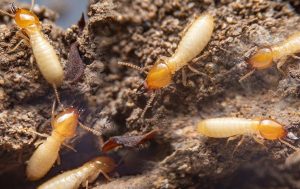Common Toxins in the Home: What’s Dangerous for Pets in Newtown and Beyond?

Your home may feel like the safest place for your pet—but many everyday items and seasonal changes can introduce unexpected dangers. From cleaning supplies to backyard plants, there are numerous substances that are safe for humans but toxic to dogs and cats.
Whether you live in Newtown, CT or anywhere else in the region, knowing what to watch for can make all the difference in preventing a pet emergency. Here’s a guide to the most common household toxins that can put your pet at risk—and what to do if exposure happens.
1. Foods That Are Toxic to Pets
Some of the most dangerous items for pets are hiding right in the kitchen. While it’s tempting to share table scraps, even small amounts of certain foods can cause serious illness.
Common offenders include:
- Chocolate – Contains theobromine and caffeine, which are highly toxic to dogs and cats.
- Grapes and raisins – Can cause kidney failure, even in small amounts.
- Onions and garlic – Damage red blood cells and can lead to anemia.
- Xylitol (found in sugar-free gum, candy, and baked goods) – Can cause a sudden drop in blood sugar and liver failure.
- Alcohol and caffeine – Even a small sip can lead to neurological symptoms or organ failure.
What to do:
Keep all human food out of reach, especially during holidays and gatherings. Educate family and guests about not feeding pets from the table.
2. Medications: Prescription and Over-the-Counter
Both human and veterinary medications can be dangerous when given in the wrong dose—or if your pet gets into them unsupervised.
High-risk items include:
- Ibuprofen and acetaminophen (Tylenol) – Extremely toxic to pets and can cause organ failure.
- Antidepressants and ADHD medications – Can cause seizures, tremors, or cardiac issues.
- Heart medications and blood pressure drugs – Dangerous if accidentally ingested.
- Pet meds – Even flavored chewables (like flea preventatives) can be harmful if a pet eats too many.
What to do:
Store all medications in secure cabinets, never leave pill bottles on countertops, and never give a pet human medication without veterinary direction.
3. Cleaning Products and Chemicals
Many common household cleaners and chemicals can pose a serious risk to pets—even in small amounts or through contact with paws or fur.
Toxic products include:
- Bleach and ammonia-based cleaners
- Drain and toilet bowl cleaners
- Carpet shampoos and floor polish
- Laundry pods
- Disinfectant wipes and sprays
What to do:
Use pet-safe alternatives whenever possible. Keep pets out of the room during cleaning and allow surfaces to dry completely before letting them back in.
4. Seasonal Toxins in the Fall and Winter
Living in Newtown or any part of Connecticut means dealing with seasonal shifts—and fall and winter bring their own set of risks.
Cold-weather hazards include:
- Antifreeze (ethylene glycol) – Just a small amount can be fatal, and it has a sweet taste that attracts animals.
- Ice melts and road salts – Can irritate paws and cause internal issues if ingested.
- Rodenticides – Often placed in garages, sheds, or basements, and extremely toxic to pets.
What to do:
Use pet-safe ice melts and store chemicals in secure locations. Clean your pet’s paws after walks to avoid ingestion from licking.
5. Indoor and Outdoor Plants
Some plants that are beautiful in your home or garden can be deadly to pets.
Toxic plants include:
- Lilies – Extremely toxic to cats; even brushing against the pollen can cause kidney failure.
- Sago palm – Common in houseplants and landscaping, but highly toxic to dogs and cats.
- Tulip and daffodil bulbs – Dangerous if dug up and eaten.
- Autumn crocus and mushrooms – Appear in the fall and can cause severe reactions.
What to do:
Research any new plant before bringing it home. If you’re unsure about a mushroom growing in your yard, assume it’s toxic and remove it.
6. Essential Oils and Air Fresheners
While they may smell pleasant to us, many essential oils are harmful to pets, especially cats.
Oils to avoid include:
- Tea tree
- Eucalyptus
- Cinnamon
- Citrus
- Peppermint
Diffused oils, sprays, and plug-in air fresheners can cause respiratory distress, drooling, or even liver toxicity.
What to do:
Avoid using essential oils around pets unless you’ve confirmed they’re safe. Keep diffusers in pet-free zones.
What to Do If You Suspect Poisoning
Symptoms of toxicity may include:
- Vomiting or diarrhea
- Drooling or foaming at the mouth
- Weakness or lethargy
- Seizures
- Difficulty breathing
- Unusual behavior or restlessness
Act quickly:
- Call your veterinarian or an emergency clinic immediately.
- You can also contact the Pet Poison Helpline (855-764-7661) or the ASPCA Animal Poison Control Center (888-426-4435) for guidance.
- Do not try to induce vomiting unless directed by a professional.
Final Thoughts
Many pet poisonings happen in ordinary homes, during everyday routines. Staying informed and making a few safety adjustments can go a long way in keeping your pet safe year-round.
By identifying risks in your home and yard—and knowing what to do in an emergency—you’re taking one of the most important steps in responsible pet ownership. Whether it’s a curious kitten or an adventurous pup, a little prevention can save a life. We recommend Douglas Animal Hospital.







